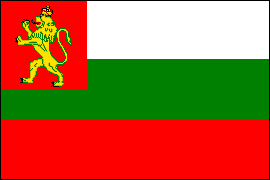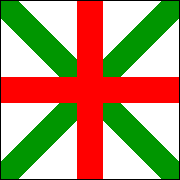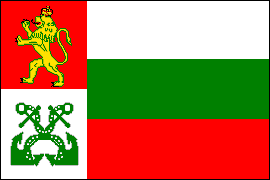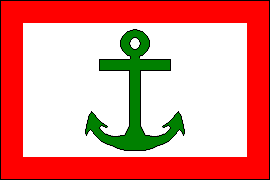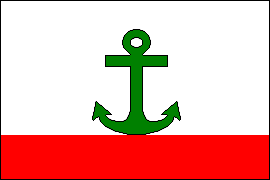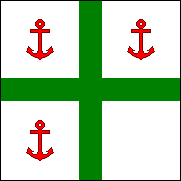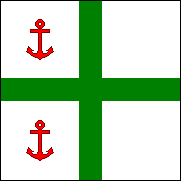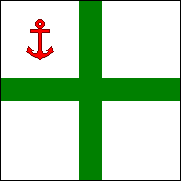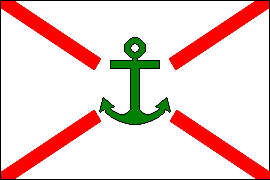KINGDOM OF BULGARIA
NAVAL ENSIGNS & FLAGS • 1908-44
Bulgaria, which had been an autonomous principality within the Ottoman Empire since 1878, proclaimed itself an independent kingdom in 1912. Except for some minor artistic refinements, however, the Bulgarian naval ensign was not changed at this time. The naval jack that had been adopted in the days of the Principality also continued in service. Gradually a new range of naval rank flags and pennants was introduced. These may be divided into two categories: command flags indicating an individual's position or office, and rank flags indicating an individual's naval rank. Unusually, for most command and rank flags there was a corresponding swallowtailed pennant.
The Bulgarian Navy hardly amounted to much in the early years of the Kingdom: At the end of the First World War its largest warship was a 771-ton gunboat. Under the disarmament provisions of the Treaty of Neuilly (1919) the Navy was abolished, being replaced by a coast guard under the control of the Ministry of Commerce. The Navy was reconstituted in 1938 with assistance from Germany, but throughout the Second World War it remained a small force of torpedo attack craft, patrol boats, riverine vessels and auxiliaries.
Flag Proportions: Most naval flags of the Kingdom of Bulgaria were made in 2:3 proportions. Exceptions were the jack and admirals' rank flags, which were square, and the pennants.
Credits: These drawings are based on images and information posted to the FOTW Mailing List by Zeljko Heimer.
